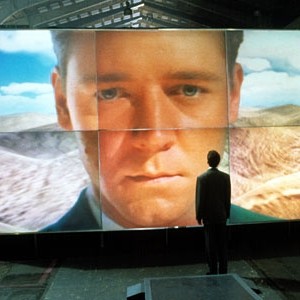- Having an extreme dedication to a certain activity; diehard.
- Particularly intense; thrillingly dangerous or erratic
- Resistant to change.
- Obscene or explicit.
The interesting part to me is that it is possible to be dedicated but not like intensity. Or conversely, like intensity but not be dedicated.
Syncaine's blog, Hardcore Casual, is a very clever play on words which, in addition to being an Oxymoron, strikes at the heart of our fundamental confusion about the definition of Hardcore. As his blog title implies, you can enjoy intensity in games and still remain casual (or less dedicated).
Rewarding the Hardcore
All MMOs (perhaps all games) reward us based on our success in the two areas. Either we are dedicated enough to finish, or we are skilled enough to survive the intensity. And most likely, it's some combination of both.
Players expect to 'work' for rewards in either of these two ways. They either expect a long ardous journey until completion, or they expect an extremely difficult challenge to overcome. One is a function of Time, the other the function of Challenge.
I think that's what people don't like about RMT and Microtransactions. RMT takes neither Time nor Challenge. You don't need to be dedicated or skilled to purchase something with RMT. It literally runs counter-clockwise to everything we have come to expect about earning rewards. It strikes anyone willing to invest the time or willing to take up the challenge as wrong.
Dedication
This is the area that really got me thinking about this whole topic. You can be Hardcore dedicated to anything. It's just a function of Time. There are people who play Mafia Wars on Facebook for 8 to 10 hours a day. Eight to ten hours a day is Hardcore dedicated even if it is an incredibly simple and shallow game.
Last January I leveled up a new Mage in WoW. I hit level 80 in a bit longer than a month. I 'think' that was around seven days played, which averages out to around 5 hours a day or 35 hours a week. This was all spent on an Alt, mind you, and I was still raiding with my Rogue at the time.
Point being, I was playing Hardcore dedicated. And I was rewarded for that effort by hitting 80 with a new character in a bit over a month. And shortly thereafter, doing very respectable 25-man Raid DPS.
Contrast this experience to my current experience with EVE. Investing my time is getting me certain things (like faction, ISK, combat experience) but it's not allowing me to get into a better ship any faster.
To get into a better ship, I need to learn more skills. The rate at which I learn these skills stays the same if I'm logged on or logged off. Spending 5 hours a day playing isn't going to change how fast I get into a specific ship.
This really strikes me as favoring the more casual player. Much more so than Warcraft. Which is REALLY REALLY ironic when you consider EVE's reputation for being Hardcore.
On a personal note, I'm all for getting rid of all silly 'leveling' and 'skilling' things that take time. I'd rather just give everyone a pool of 100 pts and the ability to pick and choose things in a 'tree' that describes the character.
Let's just skip that whole "ramp up" thing in terms of skill progression and replace it with an inventory system where the economy and crafting is important because equipment can be upgraded, lost or even destroyed.
Intensity
The intensity of a game can come in a number of different forms. My blog entry the other day about impact and competition in many ways was just a descriptor for the intensity of a game.
The foundation of "impact" being in the consequences. And the foundation of "competition" being player skill needed to win or achieve the objective.
Certainly an "impact" game which has a severe death penalty is going to make combat feel more intense. Likewise, a very equal and skilled match against another player (or NPC) will also feel more intense.
In my opinion, the "intensity" of a game is what really makes up the F-U-N factor. Increasing the "dedication" required in a game just makes it more boring. Increasing the "intensity" makes it more interesting. Provided, of course, that it's within your own personal threshold for performance.
And ultimately, that's the problem with intensity. What is not intense enough for ME, might be too intense for YOU. The poor dev is stuck in the middle trying to figure out how to create an intensity that is right for everyone.
The result is what we currently see in World of Warcraft. It's a 'fake' intensity. It's not really hard, it just appears hard unless you know the exact sequence of things you are supposed to do in a fight.
Memorize the proper order to do things and you will beat the encounter. Your actual 'skill' is measured by your ability to do these things in the prescribed order. The challenge is more about 'learning what to do' and not actually doing it.
EDIT: On the re-read after I published this entry, I realized that it might be construed that I don’t think there is any benefit to being Hardcore dedicated in EVE because of the skill system. That’s not true – it’s only a reflection of the skill system, not the entire game. As with any game, being more dedicated is going to be a much deeper and involved experience. That was really my point about Mafia Wars. Not complex or intense at all, but it’s still very possible to spend an irrational number of hours at it to make yourself better than the next guy. You really CAN be hardcore dedicated about anything.




